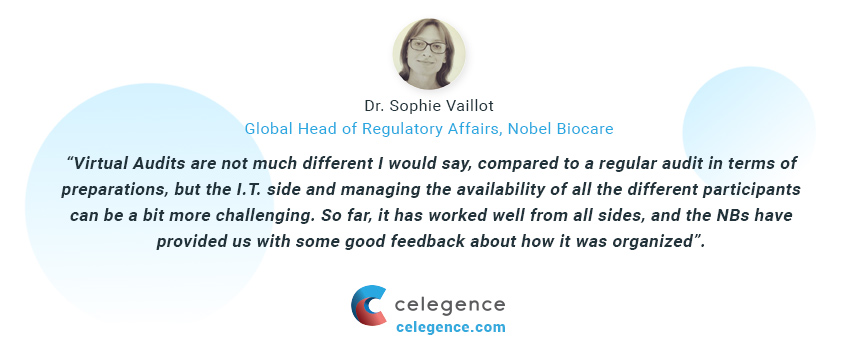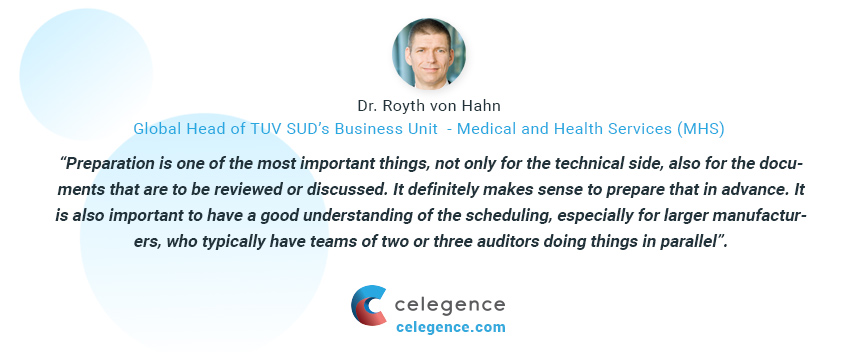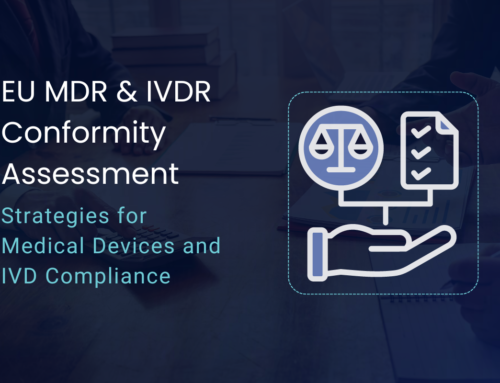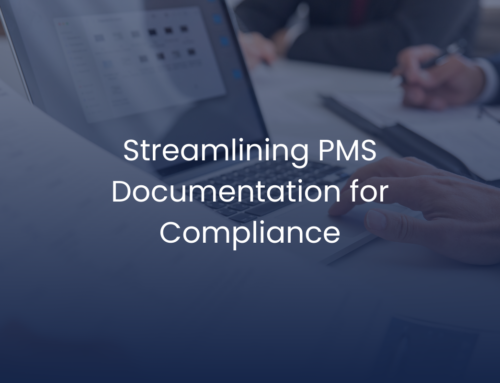
What Are Some Best Practices in Handling Virtual Audits?
Dr. Sophie Vaillot is the Head of Global Regulatory Affairs at Nobel Biocare Systems who is responsible for the overall regulatory compliance including regulatory strategy planning and execution – FDA pre-submission meetings, 510(k), CE marking and global market access as well as life cycle management activities. Dr. Royth von Hahn is the Global Head of TUV SUD‘s Business Unit “Medical and Health Services (MHS)” who is responsible for a network of around 600 experts and a portfolio of lifecycle services for medical devices, from product design to risk management and approval.
The EU commission is calling for authorities to allow notified bodies to conduct virtual audits of medical devices and in vitro diagnostics during the COVID-19 pandemic. Effectively handling the virtual audits in compliance with the EU MDR is still a challenge for many organizations. During our webinar discussion titled “Taking Advantage of the EU MDR Delay in Uncertain Times: Optimizing Your Medical Device RA/QA Strategy”, Dr. Sophie & Dr. Royth spoke specifically about some of the best practices in handling the virtual audits.
Why should you watch this video?
- This video provides tips and techniques for effective virtual audits in compliance with EU MDR which can support ongoing operations and improve audit effectiveness during unusual times
- Notified Body perspective: Virtual audit preparation & considerations
- Understand the beneficial tactics you can use in a virtual audit
- Understand the regulatory guidelines for virtual audits and how you can have the best virtual audit experience. Explore how Covid-19 will change the processes of audits moving forward.
A full transcript of the Q&A is available to download (and to read below) and just press play to watch the clip now.

Claim Your Free EU MDR Checklist Now!
Make sure you and your business are compliant with the new EU MDR. Get our 23 page checklist for actionable technical documentation requirements.
Dr. Sophie Vaillot on Best Practices for Virtual Audits – EU MDR
Well, maybe I can just share some insights because we have actually gone through several virtual audits very recently. And the answer is something that I can relate to right to right now due to my web camera not working (laughing), but it is making sure that all the IT portions of the Audit are taken care of. That is, knowing which system you’re going to use, making sure that you can test it with the auditors, and doing all of this a couple of days before the audit to make sure there are no issues. What we have found to be very helpful is making sure we have shared folders which are available to the auditors. And also that we prepare as much information as we can ahead of time so it doesn’t take ages to download or retrieve. This is also so the information can be easily accessible with clear organization, like for the chat communication of the different teams. Virtual Audits are not much different I would say, compared to a regular audit in terms of preparations, but the I.T. side and managing the availability of all the different participants can be a bit more challenging. So far, it has worked well from all sides, and the NBs have provided us with some good feedback about how it was organized. So, now Dr. Royth might have some perspective from the notified bodies point of view.


Claim Your Free EU MDR Checklist Now!
Make sure you and your business are compliant with the new EU MDR. Get our 23 page checklist for actionable technical documentation requirements.
Dr. Royth von Hahn on Best Practices for Virtual Audits – EU MDR
Yeah, I share the same experience here. Preparation is one of the most important things, not only for the technical side, also for the documents that are to be reviewed or discussed. It definitely makes sense to prepare that in advance. It is also important to have a good understanding of the scheduling, especially for larger manufacturers, who typically have teams of two or three auditors doing things in parallel. So, availability of the right people needs to be lined up in preparation for the precise scheduling, and it is even more important if you have time zone challenges. For most aspects of virtual audits, we do not see much difference, especially if there is a well-established system already in place. There are limitations of course, when it comes to production, especially like clean room audits, or various specific aspects of production where it is limited what we can do remotely. But other than that, so far it has been quite smooth with the remote audits we have performed. However, it’s important to understand that one of the major obstacles for the MDR transition currently, is that we are not allowed to do initial MDR audits in a remote setup. That, at least from our perspective, is the biggest obstacle in really managing the transition into the MDR. Since we cannot rely on previous assessments, and we have to do everything on site for the initial audit, this basically where the current MDR projects get to a full stop.



